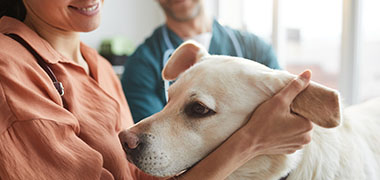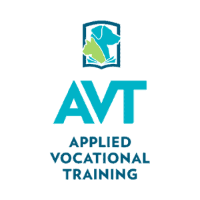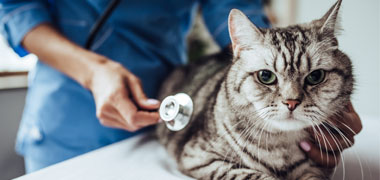
How do I become a veterinary nurse?
Certificate IV in Veterinary Nursing
- Completed Certificate III (AQF Level 3) or above in an animal science discipline OR
- Completed Certificate II in Animal Studies or equivalent qualifications OR
- Evidence of relevant skills, knowledge and employment experience








Diploma of Veterinary Nursing
- There are no mandated entry requirements.


Certificate II in Animal Care
- There are no mandated entry requirements.








Bachelor of Veterinary Technology
- There are no mandated entry requirements.



Bachelor of Veterinary Nursing
- There are no mandated entry requirements.
 Melbourne Polytechnic
Melbourne Polytechnic
Related occupations
Equine Veterinary Nurse
An Equine Veterinary Nurse specialises in horse care, assisting with surgeries, monitoring health conditions, and handling horses during treatment.
Veterinary Emergency Nurse
A Veterinary Emergency Nurse supports the treatment of animals in critical situations, assisting with surgeries and monitoring their recovery.
Veterinarian
A Veterinarian diagnoses and treats animals, specialising in areas like pets or wildlife, while ensuring excellent animal care and communication.
Animal Scientist
An Animal Scientist studies animal biology and behaviour to enhance health, productivity, and welfare through research and collaboration.
Animal Health Officer
An Animal Health Officer ensures animal well-being by monitoring health, preventing diseases, and advising on best care practices in compliance with regulations.
Animal Nutritionist
An Animal Nutritionist designs dietary plans for animals by assessing nutritional needs, formulating diets, and recommending supplements to promote health.
Veterinary Technician
A Veterinary Technician assists veterinarians in animal care, administering treatments, preparing for surgery, and educating pet owners.
Veterinary Technologist
A Veterinary Technologist provides advanced medical support for animals, conducting tests, assisting in surgeries, and educating pet owners.
Veterinary Scientist
A Veterinary Scientist researches animal health and diseases, developing vaccines and treatments while advancing veterinary medicine and public health.
Wildlife Veterinarian
A Wildlife Veterinarian provides medical care for wild animals, working with conservation teams to diagnose, treat, and protect wildlife in various environments.
Veterinary Pathologist
A Veterinary Pathologist studies animal diseases, diagnoses illnesses through lab analysis, and collaborates with vets to improve treatments and advance research.
Veterinary Surgeon
A Veterinary Surgeon diagnoses and treats animals, performing surgeries and providing health advice to pet owners for optimal animal care.
Common questions
How much does a Veterinary Nurse earn?
In Australia, a full time Veterinary Nurse generally earns $1,250 per week ($65,000 annual salary) before tax. This is a median figure for full-time employees and should be considered a guide only. As you gain more experience you can expect a potentially higher salary than people who are new to the industry.
What are the job opportunities for a Veterinary Nurse?
There are currently 12,100 Veterinary Nurses working in Australia. This number has increased from only 7,900 five years ago. Veterinary Nurses can find work in all regions of Australia.
Source: Australian Government Labour Market Insights
How do I become a Veterinary Nurse?
If you’re planning to become a Veterinary Nurse you could enrol in a Certificate IV in Veterinary Nursing. This 12 month course includes a work placement so you’ll get real world experience. The course covers various aspects of veterinary nursing from helping a vet during a surgical procedure to assisting animals to recover from injury.
Further reading


Most popular animal welfare and veterinary courses
12th April 2022)

